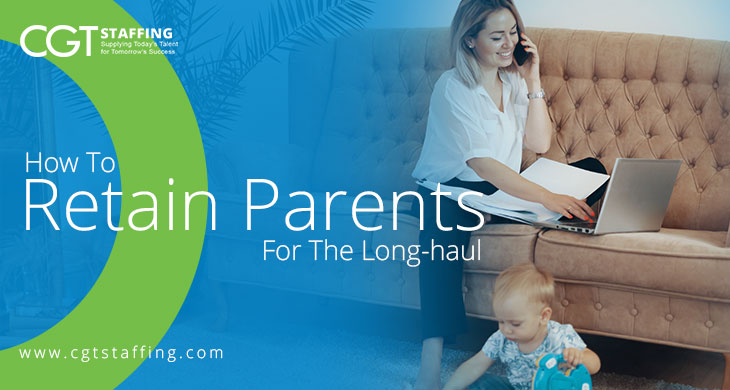COVID-19 has hardly been easy for anyone. Countries, economies, and industries have suffered from global disruption. It hasn’t been any easier for workforces. Amid these challenges, some employers may have overlooked the obstacles that a very specific demographic faces: parents have to develop multi-tasking abilities as their responsibilities continue well outside business hours.
A parent’s job is never done, even after they have clocked out each day. The pandemic has only added to these challenges. With empathy and an understanding of how parental challenges can impede workplace performance, employers can incorporate more working parents into their talent acquisition plans. Here are a few tips on how to increase hiring success when it comes to parental responsibilities amid COVID-19.
Table of Contents
Policies Including Flexible Working Hours, Maternity Leaves, and Paternity
The biggest problem that working parents encounter is workplace rigidity. When working a full-time job, it can become extremely difficult to juggle everyday work with everyday duties. When an emergency arises in the workplace or at home (or both), workers will see both aspects of their lives in conflict. On one hand, they can choose to be a parent and ignore their work role, or they can choose to prioritize their work, and thereby neglect a child. Few decisions are tougher.
For parents who have young dependents, rules like the FMLA allow for paid time off in case of family emergencies. Employers should work on more concrete policies that exceed FMLA thresholds where possible. These policies should remain standard, especially across decentralized recruitment models. The simple knowledge that arriving late or taking off to address a family need is acceptable (within reason) is enough to retain most working parents.
Professional Counseling for Young Parents
Parenting is tough. Young first-time parents often have it tougher. They often have to juggle having a child with a career that also requires constant nurturing. In particularly high-pressure roles, the stress of being a young parent can quickly become debilitating. An empathetic employer may not always be enough.
Instead, more concrete support like professional counseling or daycare may ultimately benefit both the employer and the employee. With a better understanding of managing parenting and work, employees are likely to perform better at both. As a result, the employer can ultimately benefit from more efficient management of stress and responsibilities.
Safe Spaces to Address Issues for Workers Who Are Parents
Certain parenting issues may be specific to a particular worker. For example, a worker could have a child with a physical disability or cognitive challenges. The greatest hurdle parents of these children face is that their child requires special care and attention. However, many employees would feel hesitant to ask for preferential treatment.
For example, a temp worker sourced recently through a manufacturing staffing firm may be afraid of losing paid hours and overtime opportunities if they take time off to care for a child. This is especially true when other workers are looking for the same opportunities.
Pressure derived from fear of disappointing others can cause workers to remain silent, even when the reason (a special-needs dependent) is more than valid. Employers would do well to create specialized and confidential channels that can allow working parents to voice specific concerns. The same channels can be used to address these challenges with the appropriate level of support or flexibility.
Offer Daycare Facilities, Family Medical Insurance, and Others
Compensation and benefits plans should start taking into account the needs that are specific to parents. Offering daycare can help working parents do well at work without having to worry about a young child during business hours. In the same vein, daycare enables a parent to act quickly if the need arises. The lack of stress makes for more productivity in the workplace without compromising on parenting concerns.
